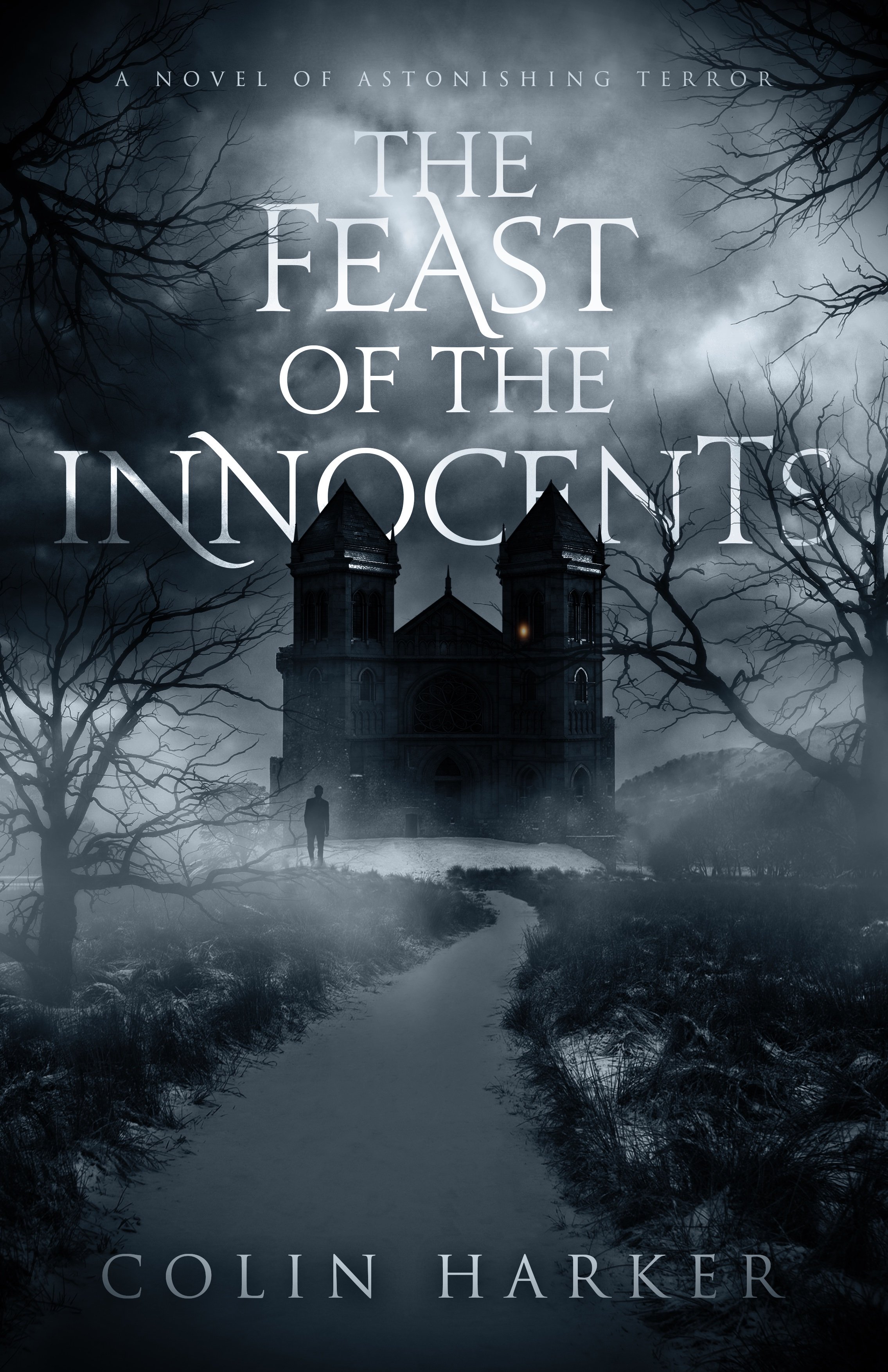The Feast of the Innocents
The Feast of the Innocents heralds the return of an earlier era in the history of the Gothic novel. Deeply steeped in the Gothic tradition, Colin Harker has a good ear for period-appropriate language and a solid understanding of how to repurpose and refashion the literary conventions that define texts such as William Godwin's Caleb Williams and Charles Maturin's Melmoth the Wanderer. There are many examples of Ye Olde Gothique Pastiche out there, and while they are often fine on their own merits, there is something uniquely thrilling about encountering a book like The Feast of the Innocents that feels like a lost pre-Victorian book that has just been unearthed from some dusty library archive or, indeed, from the attic of a moldering abbey.
Harker really understands the pacing needed by this kind of fiction. Something weird, startling, or inexplicable seems to happen every other page. Early on in the book, you'll meet a mysterious one eyed chimney sweep, be part of the crowd for an aborted hanging, and experience a secretive wanderer getting run over by a carriage and then almost killed because he won't play cards with a debauched noblemen. And it only gets wilder and more complicated from there.
One thing that struck me is that The Feast of the Innocents focuses more on the interior emotional lives of its male characters than it does the women. The women in the book are by no means given short shrift, but it's refreshing to see the exquisite anguish of two male leads who become hopelessly entwinned in dark plots that only serve to draw them closer together.
Alongside the attention paid to the history of novel's setting, which references the religious and political aftermath of the death of Charles I and the rise and fall of Cromwell, Harker also deftly updates the Gothic formula with interesting modern touches. For example, the novel's monstrosities, when they become fully apparent, will be in a shapes you likely haven't seen before in a Gothic novel. They call to mind body horror in the Cronenbergian vein, as well as the warped and murderous humanity that so often dominates modern horror. One villain, in particular, reminded me of Decker from Clive Barker’s Cabal.
If any of the above sounds appealing, and I am surely only scratching the surface, I urge you to pick up a copy of The Feast of the Innocents as Halloween approaches. Copies can be had here or here.

